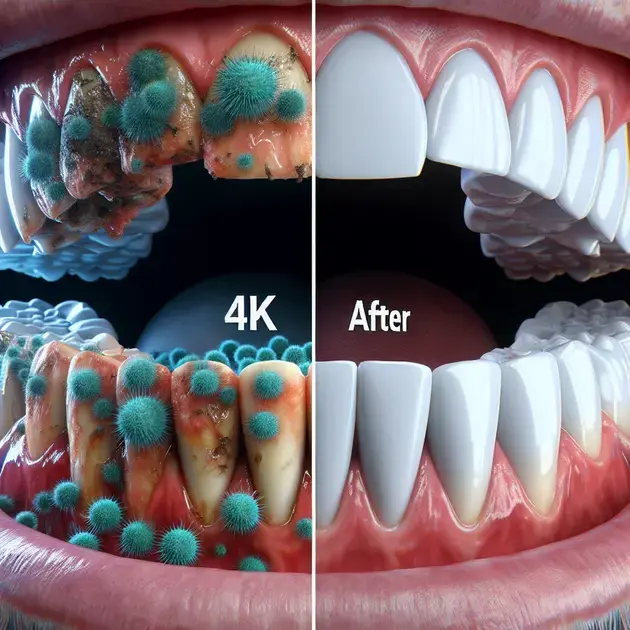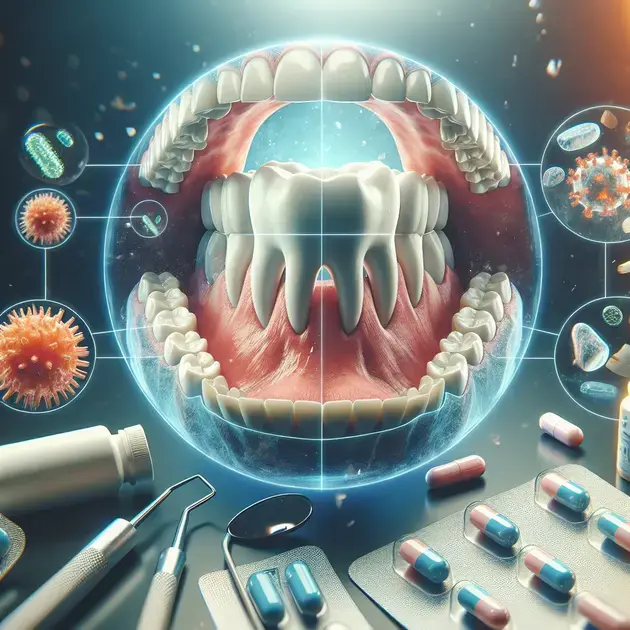Periodontitis is a serious gum infection that can damage the soft tissue and destroy the bone that supports your teeth. Fortunately, with the right treatment, it can be effectively managed and reversed. In this comprehensive guide, we will explore the most effective medications available for treating periodontitis.
Recent studies have shown that a combination of antibiotics and antimicrobial agents can be highly effective in combating the bacteria that cause periodontitis. By following a prescribed medication regimen, along with proper dental care, patients can significantly improve their gum health and prevent further progression of this condition.

Effective Medication Options for Periodontitis Treatment
Periodontitis is a serious gum infection that damages the soft tissue and destroys the bone that supports your teeth. If left untreated, it can lead to tooth loss. There are several effective medication options available for the treatment of periodontitis.
One common medication option is antibiotics, which can help fight off the infection and reduce inflammation in the gums. Your dentist may prescribe antibiotics such as doxycycline or minocycline to help treat periodontitis. These antibiotics can be taken in pill form or applied directly to the gums.
Another effective medication option for periodontitis treatment is antimicrobial agents. These agents can be applied directly to the gums or used in mouthwash to help reduce the bacteria causing the infection. Chlorhexidine is a common antimicrobial agent used in periodontal treatment.
To maximize the benefits of antibiotics and antimicrobial agents for periodontitis treatment, it is important to follow your dentist’s instructions carefully. Make sure to take the medications as prescribed and for the full duration of the treatment. Skipping doses or stopping medication early can lead to antibiotic resistance and treatment failure.
Additionally, it is essential to maintain good oral hygiene habits while undergoing medication treatment for periodontitis. Brush and floss regularly, and follow any specific instructions provided by your dentist for caring for your gums during treatment. This will help improve the effectiveness of the medications and promote better overall oral health.
Maximizing the Benefits of Antibiotics and Antimicrobial Agents
When using antibiotics and antimicrobial agents for the treatment of periodontitis, there are several steps you can take to maximize their benefits. Firstly, make sure to follow your dentist’s prescribed medication regimen carefully.
It is important to take the antibiotics or use the antimicrobial agents exactly as directed by your dentist. If you have any questions about how or when to take the medication, don’t hesitate to ask your dentist for clarification. Consistency in following the prescribed regimen is key to effectively treating periodontitis.
Another way to maximize the benefits of antibiotics and antimicrobial agents is to combine medication treatment with professional dental cleanings. Regular cleanings can help remove plaque and tartar buildup, allowing the medications to better reach the affected areas of your gums.
Furthermore, maintaining a healthy lifestyle can also enhance the effectiveness of antibiotics and antimicrobial agents in treating periodontitis. Eating a balanced diet, avoiding tobacco products, and managing stress can all contribute to better oral health and support the medication treatment.
Lastly, be sure to attend all scheduled follow-up appointments with your dentist while undergoing medication treatment for periodontitis. These appointments allow your dentist to assess your progress, make any necessary adjustments to your treatment plan, and ensure that the medications are working effectively.
The Importance of Following a Prescribed Medication Regimen
Following a prescribed medication regimen is crucial for successfully treating periodontitis and preventing complications. When your dentist prescribes antibiotics or antimicrobial agents for periodontitis treatment, it is important to adhere to the recommended dosage and frequency of the medication.
Skipping doses or altering the prescribed regimen can reduce the effectiveness of the medication and prolong the healing process. In some cases, it can also lead to the development of antibiotic-resistant bacteria, making future treatment more challenging.
To ensure that you are following the prescribed medication regimen correctly, consider setting reminders or alarms to take your medication on time. Keeping a medication journal or using a medication tracking app, such as Medisafe or Mango Health, can also help you stay organized and on track with your treatment plan.
It is equally important to communicate any concerns or side effects you may experience while taking the medication to your dentist. They can provide guidance on how to manage side effects or make necessary adjustments to your treatment plan to ensure your comfort and safety.
By following a prescribed medication regimen for periodontitis treatment, you can improve the effectiveness of the medications, reduce the risk of complications, and support your overall oral health and well-being.

Effective Periodontitis Medication Approaches
When it comes to treating periodontitis, it is crucial to explore effective medication approaches that can help manage the condition and improve oral health. One of the key medication approaches for periodontitis includes the use of antibiotics and antimicrobial treatments. These medications play a significant role in controlling the bacterial infection that causes gum disease and can help prevent further damage to the gums and supporting structures of the teeth.
Optimizing antibiotics and antimicrobial treatment for periodontitis involves a comprehensive evaluation by a dental professional to determine the most suitable medication for the individual’s condition. This personalized approach ensures that the medication targets the specific bacteria causing the infection, leading to better treatment outcomes.
Patients with periodontitis must adhere to medication guidelines provided by their dentist or periodontist to ensure the effectiveness of the treatment. This includes taking the prescribed medication as directed, following the recommended dosage, and completing the full course of treatment. Failure to adhere to medication guidelines can lead to antibiotic resistance and treatment failure.
The Significance of Adhering to Medication Guidelines
Adhering to medication guidelines is crucial for the successful treatment of periodontitis. When patients follow the prescribed medication regimen, they increase the likelihood of effectively controlling the bacterial infection and preventing the progression of gum disease. Consistent adherence to medication guidelines also promotes optimal healing and reduces the risk of complications.
Patients should communicate any difficulties or side effects they experience while taking medication to their dental provider. This feedback allows the provider to make necessary adjustments to the treatment plan to ensure the patient’s comfort and well-being. It is essential for patients to be proactive in reporting any issues that may arise during the course of treatment.
Furthermore, strict adherence to medication guidelines helps promote overall oral health and can contribute to long-term periodontal maintenance. By following the recommendations of their dental professional, patients can support the success of their treatment and improve the health of their gums and teeth.
Conclusion
In conclusion, understanding and implementing effective medication approaches are essential components in the successful management of periodontitis and improving oral health. Antibiotics and antimicrobial treatments are pivotal in combating the bacterial infection responsible for gum disease, consequently preventing further deterioration of gum and teeth structures. Personalizing medication through a comprehensive evaluation ensures targeted treatment, leading to improved outcomes.
Adherence to medication guidelines is paramount for the effective treatment of periodontitis. By following the prescribed regimen, patients increase their chances of controlling the bacterial infection, halting gum disease progression, and promoting optimal healing while reducing the risk of complications. Communication with dental providers about any issues or side effects encountered during treatment allows for necessary adjustments, prioritizing patient comfort and well-being.
Furthermore, strict adherence to medication guidelines not only supports successful treatment but also contributes to overall oral health and long-term periodontal maintenance. Patients who follow the recommendations of their dental professionals play an active role in enhancing the outcome of their treatment, ultimately leading to improved gum and teeth health. By advocating for patient engagement and commitment to treatment guidelines, the journey towards better oral health becomes a collaborative effort.



